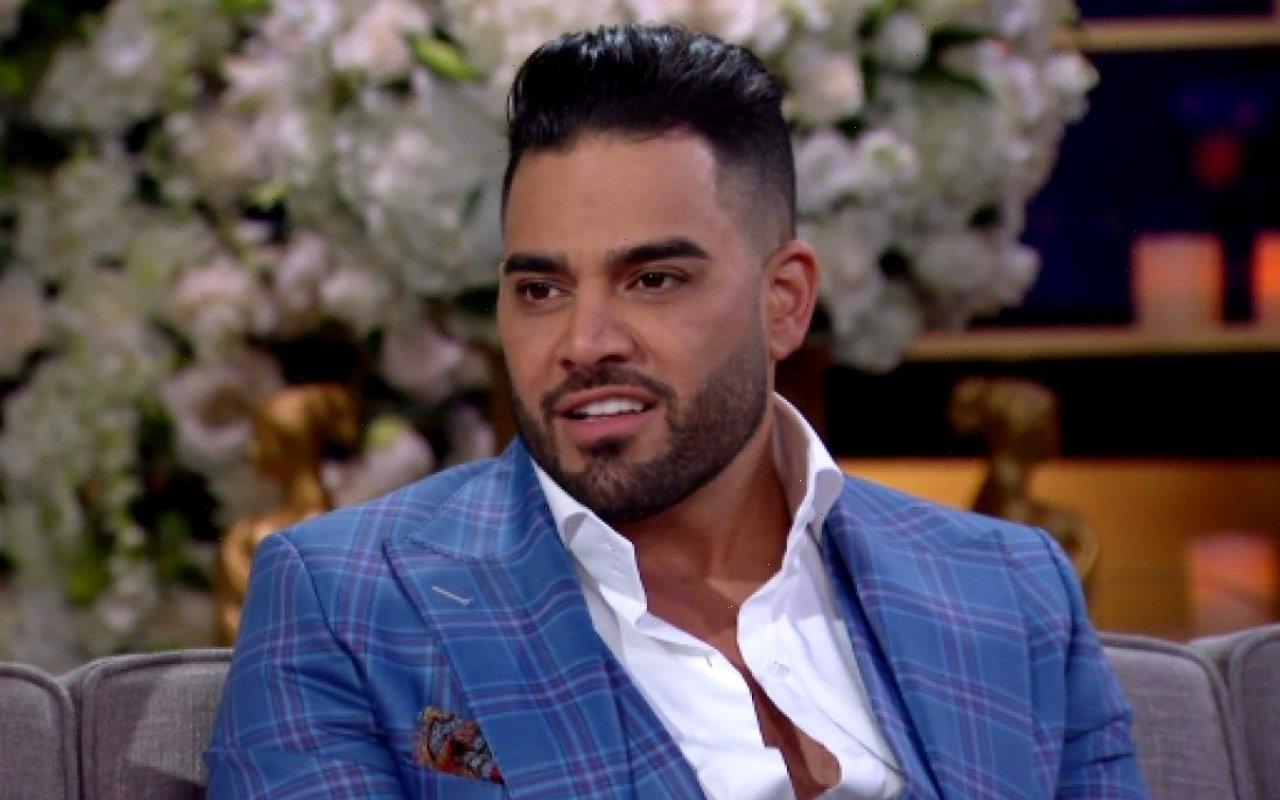Three-part documentary series “Delphine: My Story” tells how the artist Delphine Boël, the illegitimate daughter of King Albert II of Belgium, fought for legal recognition, and is now known as Princess Delphine of Saxe-Coburg. It has been sold to multiple territories, Warner Bros. announced at MipTV in Cannes Tuesday.
HBO Max has picked up the show in numerous territories in Europe. It will be broadcast on its service from May 1 in Central and Eastern Europe, in Spain, Portugal and Andorra, the Nordics, and the Netherlands. It has also been acquired by SBS in Australia, where it will air from April 23. The series aired in Belgium in January on VRT and RTL TVI. The series, from Warner Bros. International TV Production, was directed by Belgian documentary filmmaker Chris Michel.
Variety sat down with Princess Delphine and her husband Jim O’Hare in Cannes to discuss the documentary.
Delphine’s father was in regular contact with her until she was 33 years old, when he cut her out of his life “for no reason whatsoever; with no explanation,” she says. Albert only resumed contact with Delphine, who is now 54, in October 2020.

When she initiated legal action to gain recognition it was to put her side of the story, and for the sake of her children, she says. It turned into a seven-year court battle.
People would thank her for speaking up for others like her. “They felt very close to it because of their own story. And it gave me a huge amount of courage to carry on with my court case, because you have to understand that I was like a pot of clay, going up against huge power, like a big hammer of iron. I was in a very fragile situation,” she says.
She faced fierce criticism, both personally and in the press, accused of being anti-royalist, among other things. “Through gossip my being was so deformed,” she says.
One thing that triggered her to take action was when she discovered that she had been designated a “Politically Exposed Person” by the international financial sector – this is a term used by the banks to indicate that someone, usually politicians, may be at risk of engaging in money laundering or corruption. Simply by being the “alleged” illegitimate daughter of the king of the Belgians, she and her children were condemned to this shadowy status, preventing them from opening bank accounts or taking out loans.
“Thank God that people know me in Belgium, and know that I am not completely crazy with money, and so on, and a very respectable person,” she says.
Now she has been able to tell her story. “This documentary is not just about royalty, it’s about human relationships – a father and a daughter. Identity. Making possible the impossible. Never giving up,” she says.
She first met Michel in 1999 and they became friends. She admired him as a journalist because he had travelled to Africa to report on the issue of child soldiers. “I took him to be a very serious journalist, and it put me at my ease; he wasn’t someone who just wanted to report on the sensational stuff.”
After the documentary aired in Belgium, Delphine received thousands of messages from people thanking her for discussing the issue of children being abandoned by their parents. “It gave them hope,” she says. “It gave them courage.”
Engaging in the legal action and making the documentary went against the grain. “My mother was very much of the view that the country comes first,” she says. “You have to protect your country, and me being born to a prince who became a king was a scandal. So she protected my father and the country more than she did me in some ways. It’s something I grew up with. You don’t say anything, you protect your country, you protect your parents, you don’t say anything, however much you’re suffering.”

After the court case, she and her half-brother, King Philippe of Belgium – who was crowned after his father’s abdication – met in late 2020 to reconcile the rift, and their father then got in touch with her. “And so he decided to see me, and that was the most fantastic thing that could happen to me. I didn’t realize how important it was going to be to see him again,” she says. “Because, you know, when you go to court, you pretty much say ‘I hate you, I never want to see you again.’ What I didn’t realize is how important it was for me to see him again. And so now it’s a time of forgiveness, of working things out. It’s a time of healing.”
In the documentary the princess speaks direct to camera, in a very straightforward way. “I absolutely wanted that. I wanted to be intimate with the people who are going to listen to my story. I said: ‘I want them to feel like I’m in their sitting room, face to face with them.” She says the production team were “very understanding, very empathetic.”
O’Hare says that making the documentary made him nervous “because it’s a complex story.” The question was: “How do you condense a life into a short period of time?” “There’s a lot of personal archive. There’s a lot of personal footage. There’s a lot of her art involved. Interweaving that story with the art as well as with the personal archive was a difficult process,” he says.
The documentary series also explains the importance of Delphine’s art to her survival. “My art was my voice,” she says. “So it was a very important part of the story. Because I really couldn’t speak for a long time. I was able to speak through my art, and it helped me survive. I went through anorexia. I could have been a very bad one. I nearly died of it. I could have gone into drugs. But thanks to my art, it really helped me to say things that I couldn’t say. It’s tough when you’re growing up.”
Winning the court battle has allowed her to move forward. “I feel so rewarded. I’m so happy I’ve done it, and I can go on to something else. The second part of my life. I just go forward. It’s part of me. I’m not turning my back on it, but it feels like I’m born again. It’s a fantastic feeling.”
She recently competed in “Dancing With the Stars” in Belgium. “It was amazing. An incredible experience. And it was also a risk, because you have to understand that now I wear the name Princess of Belgium. It is a bit of a responsibility. But I wanted to keep being me. ‘Dancing With the Stars’ was a bit of a shock for many people, because it’s never been done before that a princess would go on a show like that.”
She adds: “I try and stay true to myself as much as possible. ‘Dancing With the Stars’ was a bit of a statement. Dancing is a celebration of life, right? There is nothing bad about dancing. On the contrary, I think everybody has to have a little boogie every day in front of the mirror.”
She is now writing her autobiography.
Source: Read Full Article


